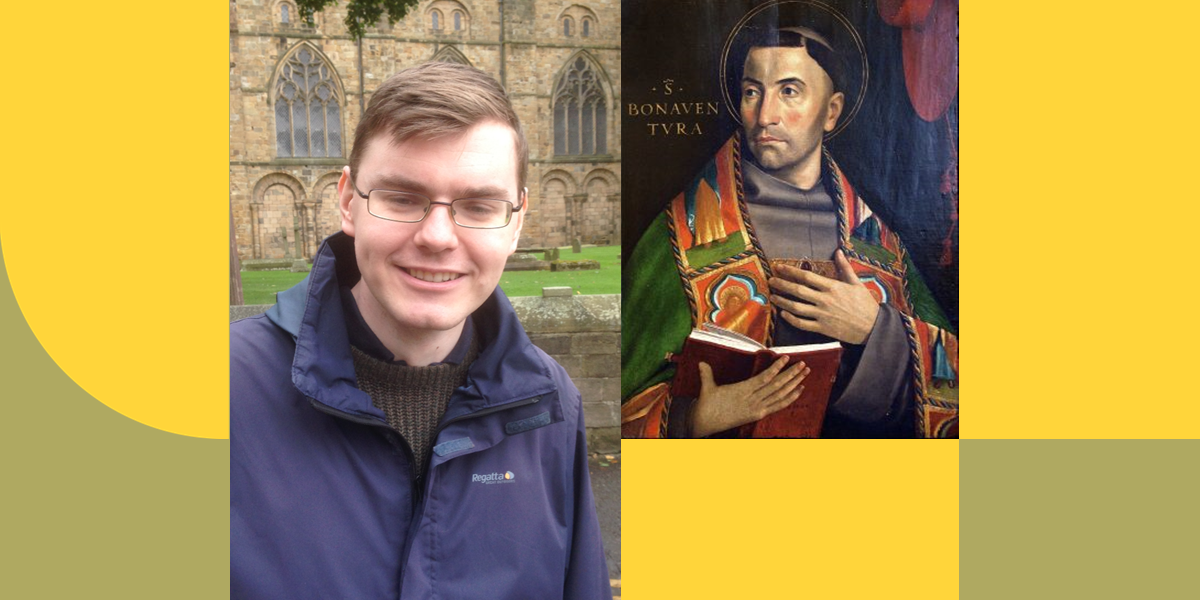Franciscan Theology News - Congratulations to Billy Crozier

We are excited to share with you some very good news – Dr William (Billy) Crozier, who recently completed his PhD with the Centre for Catholic Studies, has been awarded a three-year Leverhulme post-doctoral fellowship. It will be in Franciscan theology and will held here at the CCS at Durham University.
The project will strengthen the CCS’s developing programme in Franciscan Studies and offer the opportunity for Durham to be at the heart of the editing and dissemination of a previously unknown work attributable to St Bonaventure. More details are shown below.
We’re thrilled that Billy’s expertise has been recognised by this prestigious fellowship scheme and we look forward to working with him for another three years.
The Science of the Saints: St Bonaventure of Bagnoregio’s Quaestiones De Colore
The project will lead to the production of an edition, translation, and commentary of the Quaestiones de Colore. These are found in a little Assisi manuscript which is believed to be a notebook belonging to St Bonaventure from his time as a student in Paris c.1250 and which is written in his own hand.
The scholarly consensus maintains that Bonaventure, unlike Thomas Aquinas and Albert the Great, produced no truly scientific or philosophical works, but instead confined his attention to ‘purely’ theological writings. The Quaestiones de Colore are the only example of a piece of ‘scientific’ work attributable to St Bonaventure and, thus, are highly important. If their authenticity is accepted, they would offer the basis for a fundamental shift in how we view Bonaventure’s place within the theological-philosophical milieu of the 13th century.
They would also speak greatly to the vexed question of his attitude towards the relationship between faith and reason, and the place of philosophy in Christian wisdom – a subject upon which some of the greatest Bonaventurian scholars of the last century (e.g., Étienne Gilson and Joseph Ratzinger) spilled much ink. The project will also show how Bonaventure, as well as several other of the early Franciscans – Roger Bacon, Robert Grosseteste, Alexander of Hales, Richard Rufus of Cornwall etc. – all made important contributions, equal to those made by the Dominicans, Albert the Great and Thomas Aquinas, to the scientific theories of light, colour, matter, vision, and motion.
The animating spirit of the project is not that of the history of science. Rather, its modus operandi is decidedly theological: to show how the ‘scientific’ contributions of the early Franciscans can be understood within the framework of Franciscan creation theology and its underlying assumptions about faith and reason, the Franciscan love of nature, and Bonaventure’s personal belief that ‘Omnis creatura narrat sapientiam Creatoris’ (Each creature proclaims the wisdom of the Creator).


/prod01/prodbucket01/media/durham-university/research-/research-centres/catholic-studies-centre-for-ccs/Franciscan-Studies-Summer-School-1-2395X1026.jpg)